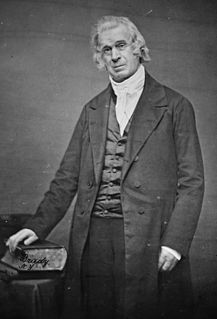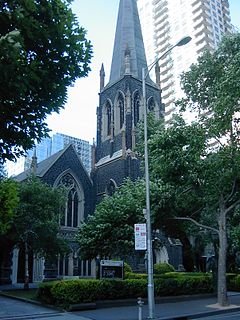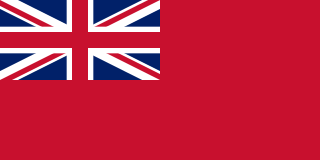
Methodism, also known as the Methodist movement, is a group of historically related denominations of Protestant Christianity which derive their inspiration from the life and teachings of John Wesley. George Whitefield and John's brother Charles Wesley were also significant early leaders in the movement. It originated as a revival movement within the 18th-century Church of England and became a separate denomination after Wesley's death. The movement spread throughout the British Empire, the United States, and beyond because of vigorous missionary work, today claiming approximately 80 million adherents worldwide.
The Wesleyan Church, also known as the Wesleyan Methodist Church and Wesleyan Holiness Church depending on the region, is a holiness Protestant Christian denomination in the United States, Canada, the United Kingdom, South Africa, Namibia, Sierra Leone, Liberia, Indonesia, Asia, and Australia. The church is part of the holiness movement and has roots in the teachings of John Wesley. It is Wesleyan and Arminian in doctrine.

Nathan Bangs was an American Christian theologian in the Methodist tradition and influential leader in the Methodist Episcopal Church prior to the 1860s.
Jabez Bunting, English Methodist preacher was born of humble parentage at Manchester. He was the most prominent Methodist after John Wesley's death in 1791. He preached successful revivals until 1802, when he saw revivals leading to dissension and division. He then became dedicated to church order and discipline, and vehemently opposed revivalism. He was a popular preacher in numerous cities. He held numerous senior positions as administrator. He watched budgets very closely. He and his allies centralized power by making the conference the final arbiter of Methodism, and giving it the power to reassign preachers and select district superintendents. He favored the extension of lay power in committees, and was particularly zealous in the cause of foreign missions. Politically, he was conservative, as were most Methodist leaders.

Wesley Church is a Uniting Church in the centre of Melbourne, in the State of Victoria, Australia.
William Ryerson was a Methodist minister and political figure in Canada West.
Matthew Richey, was a Wesleyan Methodist minister, an educator, and an important leader in the Methodist community in Nova Scotia.

Thomas Coke was the first Methodist bishop and is known as the Father of Methodist Missions.

John Byington (1798–1887) was a Seventh-day Adventist minister and the first president of the General Conference of Seventh-day Adventists. His father, Justus, was a soldier in the American Revolutionary War, an itinerant Methodist Episcopal preacher, and later one of the founders of the Methodist Protestant Church, becoming an early president of its Vermont Conference. At 7 years of age John first came under the conviction of sin, and at 18 (1816) was converted. He became active in Methodist laity work, but at 21 years of age his health failed, and for three years he suffered depression. He returned to work dividing his time between farming and preaching.
Richard James Fildes (Dick) Boyer was an Australian grazier and broadcasting chief. From 1945 until his death he served as chairman of the Australian Broadcasting Commission and the annual Boyer Lectures on Radio National are named in his honour.
Joseph Horner Fletcher was a West Indies-born Methodist minister of English descent and was the founding Principal of Wesley College, Auckland and the second President of Newington College, Sydney. He was elected as first president of the NSW and Qld Wesleyan Methodist Conference and later as president of the General Conference of Australasia.
Jabez Bunting Waterhouse was an English-born Australian Methodist minister and a leading legislator within Methodist conferences.
Rev. John Farrar (1802–1884) was a Methodist minister. He was Secretary of the annual British Methodist Conference on fourteen occasions, and was twice its elected President. Farrar was tutor and governor of several Wesleyan colleges. These included the early Wesleyan training college at Abney House, near London; and British Methodism's first purpose-built college at Richmond, now Richmond University.

Rev. Frederick James Jobson D.D. - commonly styled F. J. Jobson - painter, architect and Wesleyan Methodist minister, became President of the Methodist Conference in the late 1860s, and Treasurer of the "Wesleyan Methodist Foreign Mission Society" 1869–1882. Alongside his important role in encouraging Methodist architecture, he was the author of devotional, architectural, biographical and travel books - which, combined with his role superintending The Methodist Magazine for over a decade and related duties - led to a great expansion of Methodist publishing. His topographical paintings provide a further legacy.

Samuel Sobieski Nelles was a Canadian Methodist minister and academic.
William Bennett was a British born Methodist minister of whom little is known bebore 1800.
John Hannah D.D., called the elder (1792–1867) was an English Wesleyan Methodist minister.

John Dury Geden (1822–1886) was an English Wesleyan minister and Hebraist.








